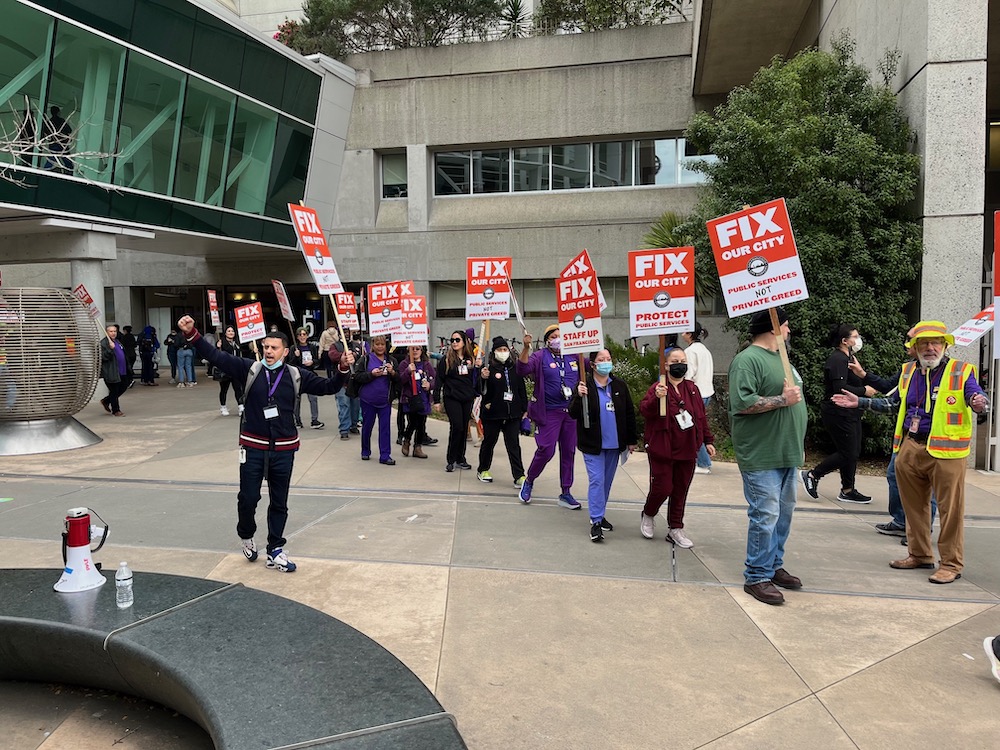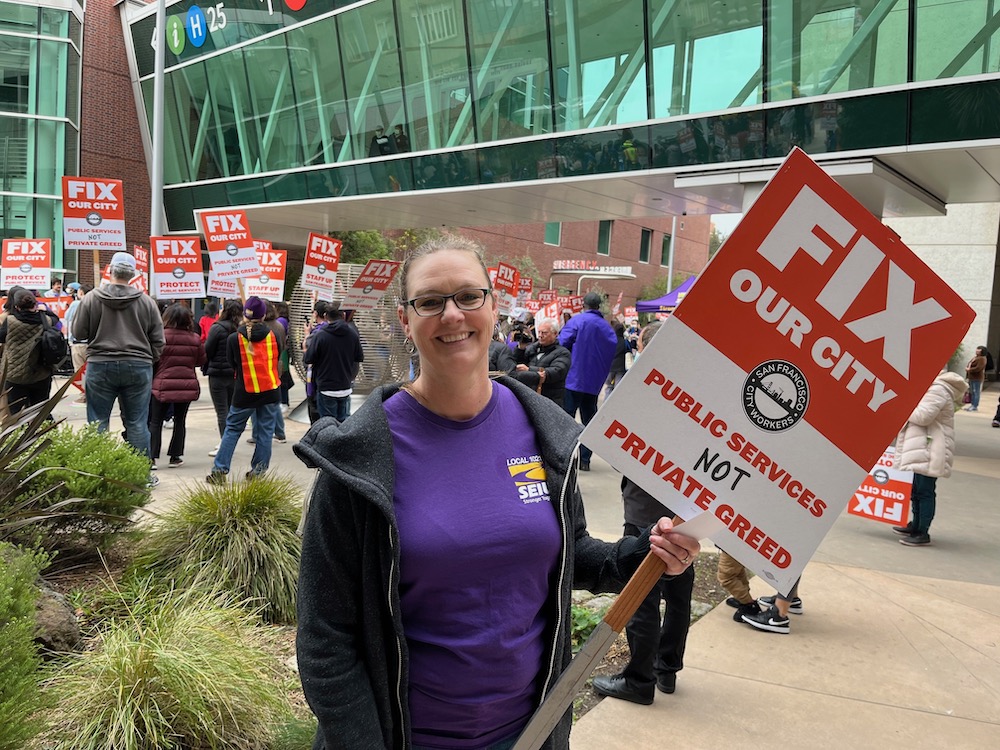Heather Bollinger, an emergency room nurse at SF General, stood on a raised bench just outside of the trauma center Friday, looked around at some 500 union members rallying for improved staffing, and told the other speakers to be careful.
“If somebody falls off,” she said, “you could be waiting eight hours in the ER for an ice pack.”

Crisis care at the hospital—in fact, almost all care at the hospital—is in crisis. Bollinger told me nurses are routinely working 12-16-hour shifts with no breaks. That’s not good for anyone, including the patients.
Wait times in the EER are far too long. Nurses are leaving because of the impossible conditions, Bollinger said.
She estimated that roughly 100 nursing positions are vacant—but the Department of Public Health won’t tell the union the exact number. “We don’t have that info,” she said. “Why are they not telling us?”
The boisterous rally featured three supes, Connie Chan, who chairs the Budget and Finance Committee, Ahsha Safai, who is running for mayor, and Dean Preston, who chairs the Government Audit and Oversight Committee.
Union members discussed the astonishing number of vacancies in city jobs—more than 600 fully funded positions are empty in the Department of Public Health alone—and called on the mayor to fix the problem.
Preston also noted that, for the first time in years, the major city unions are going into contract negotiations at the same time that the mayor is facing re-election and six seats on the Board of Supes are on the ballot.
So Mayor London Breed will be on the hot seat in many ways: She’s already in political trouble, and doesn’t need the 30,000 members of the city employee unions campaigning against her—but she’s offered no immediate solutions to the staffing problem.

“Where the hell is the mayor?” Bollinger said.
The labor coalition says that the city is spending $5.2 billion a year on outside contracts, some of them for work that city employees could do for much less.
DPH, for example, spend $85 million hiring temporary traveling nurses to fill in for empty positions—14 percent more than it would have cost to hire local nurses.
That money, of course, all goes out of town. The nursing staff contract is with Cross Country Healthcare, based in Boca Raton, Florida.
Oh, and those nurses arrive with no knowledge of SF General, and the existing staff have only two days to train them. “And then they are gone in three months,” Bollinger told me.
I got a statement from SFGH, which reads:
At times, ZSFG, like hospitals throughout the country, supplement its daily nursing staff because of high patient volumes, leaves and vacant nursing positions. In addition to using temporary civil service staff, the hospital uses temporary staff hired through an RN Registry, a list of nurses who are legally licensed and trained to practice nursing.
This ensures that we continue to safely provide the highest level of patient care and meet state regulated patient to staff ratios. Overall, the vast majority of patient care is administered by permanent RNs.
After several years of pandemic-related hiring and retention challenges in healthcare throughout the nation, ZSFG is making steady progress in hiring and retaining nurses which will lessen the need for the using registry staffing.
Since the beginning of the fiscal year alone, the San Francisco Department of Public Health has hired 109 registered nurses and has hundreds of applicants being reviewed.
At a time when the mayor is focusing on more money for the cops, the issue of public health, which is also part of the public safety infrastructure, and contracting out, will be a huge part of the budget discussion. The city’s facing a huge deficit, and unless the mayor works, as she almost certainly won’t, to raise new revenue, cuts are going to be brutal.
So that means tough choices—and some of the supes are not on the same side as Breed.
“Time and again, we are closing budget deficits on the backs of our workers and our most vulnerable,” Chan told the rally.







